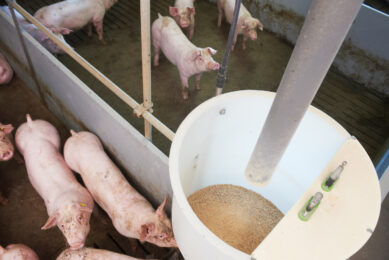Expert talk: Zinc oxide in phytase-low phosphorus diets

In many countries, a pharmacological dose of zinc oxide (ZnO) is routinely fed to newly weaned piglets for growth promotion. EU legislation limits the content of Zn in swine feeds to 150 ppm to reduce its impact on the environment.
Still, in some EU countries its use is allowed as a therapeutic agent in medicated feeds to prevent
piglet diarrhoea in the first two weeks after weaning. Diets are based on cereals and legume seeds, and therefore contain substantial amounts of phytate-phosphorus which, to become available require previous hydrolysis by phytases. Thus, diets are commonly supplemented with phytases to improve P digestibility, and reduce the use of inorganic-P and the excretion of P. In vitro, phytic acid can readily form chelates with divalent minerals, like Zn, thereby reducing phytase’s accessibility to phytate-P. If the same occurred in vivo, the efficacy of phytases may be compromised in diets supplemented with high doses of ZnO.
That hypothesis was investigated in a trial where inorganic-P was reduced at the expense of phytases, in combination or not with a pharmacological dose of ZnO, by Lizardo and others in 2004. Results showed that despite using phytases, the combination of reduced inorganic-P supply and ZnO, decreased feed intake, growth performance and serum P concentration (see Table 1). The withdrawal of ZnO increases the piglet’s feed intake, they grow better and recover serum Ca concentration. Nevertheless, the serum P did not reach the normal concentration.
Zn at high concentrations may bind to phytate and less P may be recovered with the use of phytases. Then the piglets may become P deficient and their bone mineralisation and growth performance may be impaired. Although the use of phytases in diets for early-weaned piglets may be limited, these results confirm the risk of reducing the inorganic-P supply in medicated feeds containing pharmacological doses of ZnO.











